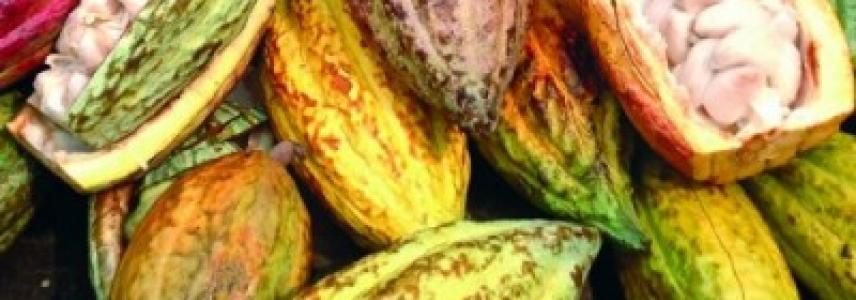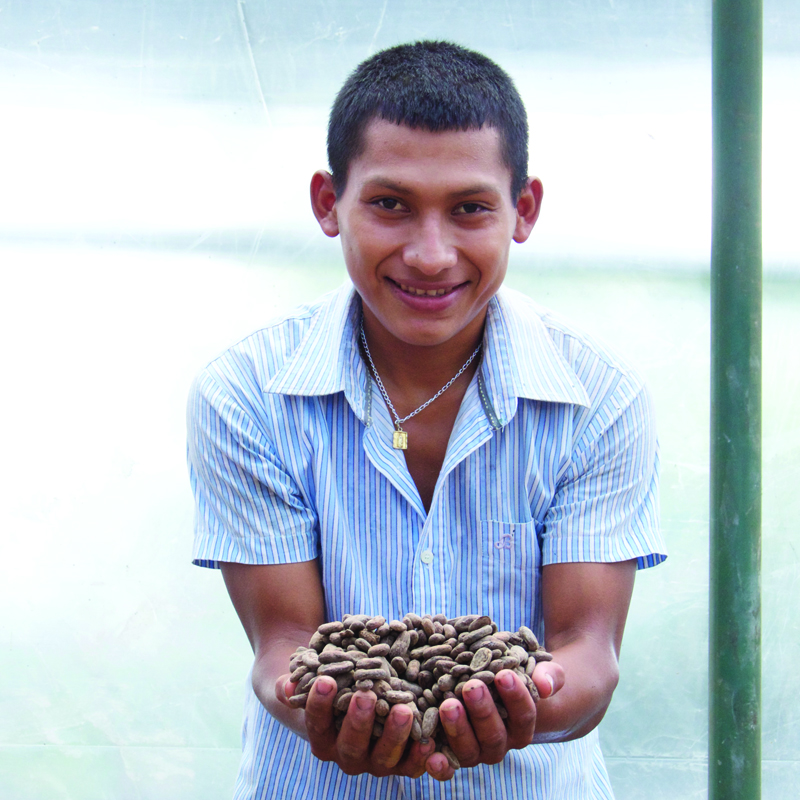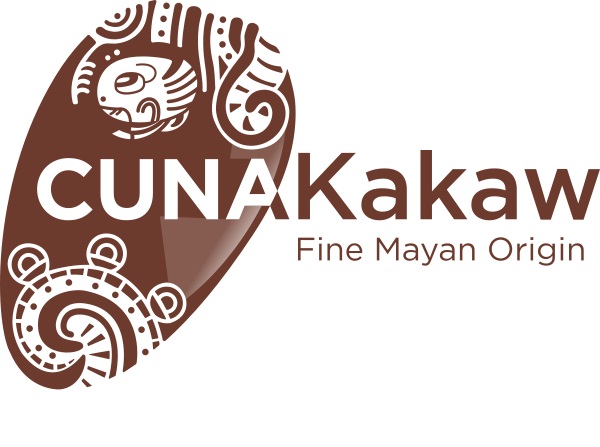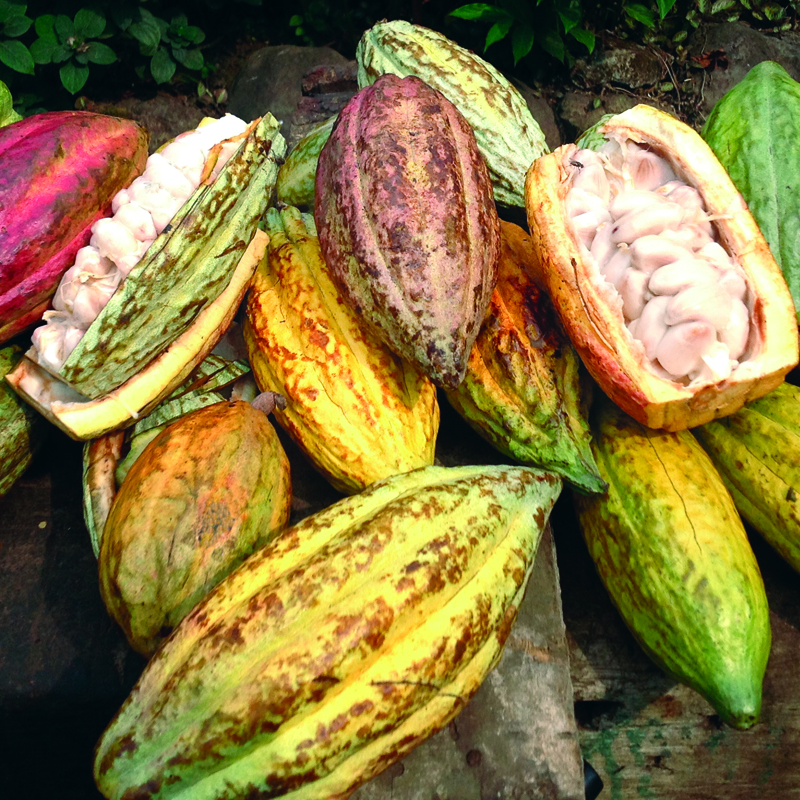Fine Mayan Cacao and Chocolate CUNAKakaw at Paris salon du chocolat

From the 28th of October until the 1st of November this year a new alliance of fine and flavour cacao and chocolate producers from Central America will launch their seal of origin, quality and traceability “CUNAKakaw” at the Salon du Chocolat in Paris.
CUNAKakaw
The initiative comes forth from 5 Central American countries, that have teamed up to show the world the fine quality of cacao produced in that region, working actively on Mayan origin, quality assurance, transparent communication and traceability. Sixteen companies from Mesoamerica are already part of AMACACAO, the Mesoamerican Association of Fine Cacao and Chocolate, which safeguards these standards under the brand CUNAKakaw.
OriginWith CUNAKakaw, the origin of the cacao beans is always the Mayan Region – Guatemala, Belize, Honduras, El Salvador, Nicaragua and Southern Mexico. The way of cultivating the fields and taking care of nature is an important part of Maya history.

And let us not forget that it was here that humanity developed a passion for chocolate (as a drink and food ingredient), taken to Europe by the Spanish to subsequently conquer the world in all the chocolate manifestations we know today.
Quality
Cunakakaw means high quality Criollo and Trinitario cacao beans, with an Internal Control System to uphold traceability and GAP standards in cacao agriculture and chocolate processing. Not only to meet international market access requirements, but also – importantly – to provide to buyers sensorial excellence.
AMACACAO countries have been recently included by ICCO to Annex “C” of the International Cocoa Agreement: List of Producing Countries Exporting Exclusively or Partially Fine or Flavour Cacao.
Social and environmental responsibility
When selecting the farms, CUNAKakaw also takes into account social, environmental and labour aspects, such as the absence of child labour and complying with national social security laws. Some companies will also have certifications such as Rainforest Alliance, Organic or Fair trade, but in general all CUNAKakaw-companies are committed to sustainable land use under an agroforestry system and Good Agricultural Practices (GAP).
Value
Added value to Central American economies is the production of final chocolate, whether it be gourmet couverture or premium consumer bars and bonbons. In recent years a good number of professional chocolate makers have been making fame in
Mesoamerica and it is time the world gets to know them! Only chocolate with the highest standards may bear the CUNAKakaw trademark, including aspects such as the quality of beans used, cacao content, finesse and presentation.
Awards
This year, four cacao samples of the region were selected amongst the best 50 samples of the World for the 2015 Cocoa of Excellence Programme and the International Cocoa Awards.
Meet and taste
Ten CUNAKakaw companies will be at Salon du Chocolate stand 12E (Producer Countries Hall 5). Tastings of CUNAKakaw beans, liquor and chocolate will be held on Thursday 29th of October and Friday 30th of October, both sessions at 14:00. Also, don’t miss the Chocolate Fashion Show, in which CUNAKakaw will be represented with a chocolate dress of a Mayan princess, designed by Michelle de Matheu. This stunning fine couture will be presented during the Gala Evening on 27th October (by invitation only) and every day at 17:00.
For further information, please contact info@cunakakaw.com


CUNAKakaw company profiles present at Salon du Chocolat
- APROCACAHO | Honduras
The Association of Cacao Producers of Honduras (APROCACAHO) is an organization that provides training, technical assistance and other services to cacao families in Honduras, promoting ecological and competitive production, socio-economic development of its member-cooperatives, and facilitating the marketing of conventional, certified and specialty cacao and cacao products. - CACAONICA | Nicaragua
The Agroforestry Cacao Cooperative of Nicaragua (CACAONICA) is located in Waslala, a rural community in the North Atlantic region of Nicaragua, part of an ecological reservation declared by the UN as “the Lungs of Central America”. Representing more than 2000 cacao producers and 90 villages, the Waslala community is a pioneer in its region for the marketing of organic and fair trade cacao, which includes hybrids of Criollo and Trinitarian cacao with notes of fruit, caramel, coffee, spices and leather. It has little acidity, astringency, and almost no bitterness. - Cacaos de Mesoamérica | Guatemala
Chocolate maker and rst CUNAKakaw-president Juan Francisco Mollinedo founded Cacaos De Mesoamérica S.A. in 2012. The company develops unique flavour profiles of the Mesoamerican region only from specific sought-out cacao that has undergone good post-harvest practices. The company is focused on cacao from Mayan Single Origin plantations for boutique production of fine and flavour chocolate and couverture. - Chocolate del Caribe | Honduras
Chocolate del Caribe S.A. is a young company based in Choloma, Honduras, engaged in the production of high quality couverture and cacao liquor to provide it to chocolate factories and chocolatiers worldwide. Chocolate del Caribe has a plant with a capacity of approximately 3.000 tons of cacao liquor and 450 tons of couverture per year. Owner Hugo Hermelink also manages an organic farm in Costa Rica which was the first cacao farm in Latin America with Rainforest Alliance and UTZ-certification. - COAGRICSAL | Honduras
The Agricultural Coffee Cooperative San Antonio (COAGRICSAL) became a financially strong cooperative with coffee and oldspice, with transparent administration, professional production and processing, all managed under environmental friendly processes. Recently, COAGRIGSAL added cacao to its product line, giving technical, financial and productivity services to small producers from Western Honduran, all with the aim of contributing to economic, environmental and social growth of Honduras. COAGRICSAL processes and exports the cacao. - ES-Cacao | El Salvador
ES-Cacao’s mission is to promote standardization in producing ne cacao aroma among El Salvador’s cacao-producing companies, through good planting techniques and good (post-)harvest handling to ensure its export quality of fine and flavour cacao. ES-Cacao uses advanced propagation and cross-pollination techniques in order to assure a good genetic foundation in El Salvador in terms of sensorial quality and productivity, always with respect for and in collaboration with Mother Nature. - FEDECOVERA | Guatemala
FEDECOVERA is a second level Federation led by small producers that are organized in cooperatives, with the aim to create better living conditions while always respecting and protecting their native Q'eqchi' Mayan culture. FEDECOVERA already established a name for itself as a prime exporter of (among others) organic cardamom, allspice, coee and tea, and has recently added cacao, as the Cobán, Alta Verapaz region of Guatemala has a lot of potential with its Criollo and Trinitario varieties. Farmer training in (post-) harvest techniques has already proven fruitful, as European buyers have already started importing FEDECOVERA’s cacao. - Finca la Cruz | Guatemala
Finca la Cruz is a four-generation family-owned farm established in the southwest of Guatemala in the late nineteenth Century by the Valenzuela Family. Over the years, the artisanal post-harvest process with a unique way of fermenting and drying the cacao beans have maintained high quality cacao, giving it an exceptional flavour and aroma. - La Campesina | Nicaragua
La Campesina is a cooperative that organises more than 400 small-scale cacao farmers, with a total area of 915 hectares, in the central part of the country. The company provides finance, marketing, and technical assistance to its members. The company sells cacao beans with UTZ Certified and Organic certification. La Campesina is also making the transition to becoming a processor of cacao liquor and chocolate. - Chocolates Melher | El Salvador
Chocolates Melher, founded by Marvin Melher, dedicates itself to the production of finished chocolate products for end consumers in Central and North America. The company employs more than 100 employees, and is an exemplary of El Salvador’s professional and modern industrialisation. As Chocolates Melher currently depends heavily on imports for its supply of cacao products, Chocolates Melher has decided to become member of AMACACAO in order to stimulate the production of quality cacao products in Central America itself, as well as responsible sourcing of ingredients. - Finca Cuyancúa | El Salvador
Finca Cuyancúa was established in 1888, in the municipality of Izalco. This area is considered the origin of Mayan cacao productions in El Salvador, of which Cuyancúa is a witness: it still preserves certain antique plantations and Mayan artifacts, like ceramics and obsidian rock, can be found. But Cuyancúa has also modernised, with innovative and highly technical practices for production and quality processes. The varieties of cacao present are ancient Maya Criollos, and Trinitarios (considered as modern Criollos). Cuyancúa also has the first cacao clonal nursery in the country with more than 45 different varieties, and a modern processing plant, powered by renewable energy sources. - Cacaoterra/Shaw's| El Salvador
Shaw’s has been making chocolate in El Salvador since 1980, making diverse types bars, bonbons, and seasonal chocolate with local fresh fruits and nuts. In 2008, Shaw’s began making chocolate from bean to bar, sourcing 100% of its cacao from local Mesoamerican farms or cooperative, and began producing our own liquor, cocoa butter, couverture, and cocoa powder, which has provided a great learning curve for sourcing and processing cacao. Shaw’s team consists of 160 people, 80% is female, and all enjoy the sweet work!